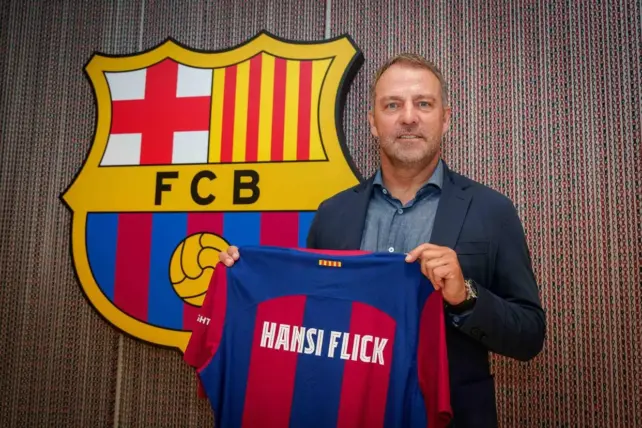Across the Jeetbuzz Login community, frustration has begun to rise as Barcelona’s early promise under Hansi Flick appears to be fading fast. The thrilling energy that marked his arrival has given way to unease after a string of inconsistent results — the latest being a disappointing 3–3 draw with Club Brugge in the Champions League. Though Barça still have games left to turn things around, the performance on the pitch told a troubling story: a disjointed attack relying heavily on Yamal’s youthful bursts, a defense leaking goals at will, and a squad that no longer looks fearless. The recent defeats to Sevilla and repeated stumbles against PSG and Real Madrid only deepen the sense that Flick’s infamous “second-year curse” might be resurfacing once again.

Throughout his managerial journey, the pattern is uncanny. Flick’s debut seasons often sparkle — his Bayern Munich side was nearly flawless, dominating Germany and Europe alike. Yet the very next campaign, the energy dipped, the tactics grew stale, and the results became erratic. His spell with the German national team followed the same trajectory: an explosive start with seven consecutive wins, followed by an early World Cup exit that stunned fans. Even back in 1996, during his early coaching days at Victoria Bammental, Flick’s team enjoyed a strong first year only to suffer relegation in the second. For many Crickex Sign Up followers, this recurring narrative feels less like coincidence and more like an unshakable managerial pattern.
The reasons behind this decline seem both tactical and psychological. Flick’s system is built around relentless pressing and tight offside lines — strategies that can overwhelm opponents at first but soon become predictable once rivals learn how to exploit them. Barcelona’s repeated defensive lapses this season are a direct symptom of that rigidity. Compounding the issue, Flick’s high-intensity training methods, while excellent for short-term results, often leave players exhausted or injured midway through the campaign. The current wave of muscle injuries among key starters mirrors what Bayern endured during his later tenure, suggesting history may be repeating itself.
There’s also the human factor. Flick’s passionate, hard-driving leadership can ignite a dressing room early on, but sustaining that same fire is a different story. Players eventually tire of the nonstop pressure, and without fresh tactical ideas to keep them engaged, motivation wanes. For this year’s Barcelona, the problem runs deeper — financial restrictions have limited reinforcements, leaving Flick with a thin squad short on world-class replacements. Losing Iñigo Martínez, failing to sign a proven striker, and relying on budget-friendly wingers have all chipped away at the club’s balance. Many Jeetbuzz Login analysts argue that even the best tactician would struggle under such constraints.
As things stand, optimism must be tempered with realism. Barcelona’s rebuild will take time, and Flick’s biggest test lies not in tactics but in adaptability. Whether he can evolve beyond his old habits may decide both his future and the team’s. The “second-year curse” has followed him across clubs and competitions — but curses, as history often proves, are made to be broken. For now, Jeetbuzz Login readers can only wait to see if Flick’s story ends in another collapse or the long-awaited redemption of a coach learning from his past.
